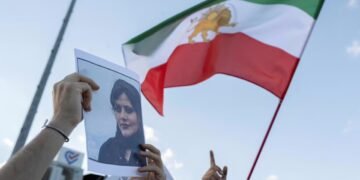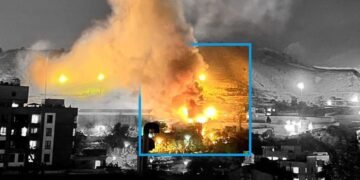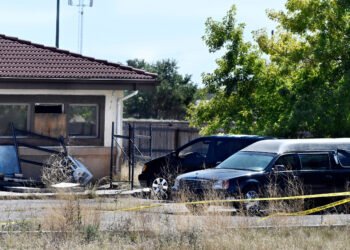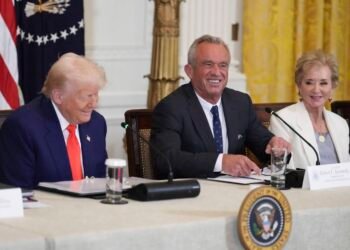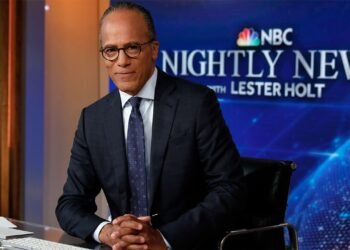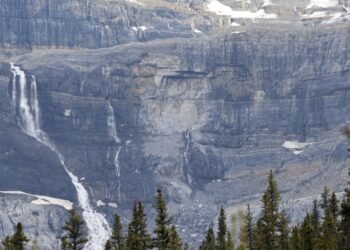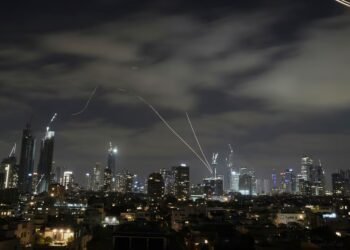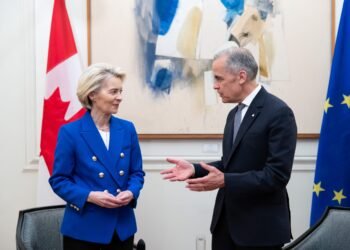Los Angeles — Just hours after Meta CEO Mark Zuckerberg announced plans to eliminate its U.S.-based fact-checking program, the iconic hills above Los Angeles erupted into flames. While fire crews scrambled to control the blaze, Meta’s fact-checkers—still on the job for now—waged a different battle: combating a wildfire of viral misinformation about the disaster.
“Cutting fact-checkers from social platforms is like disbanding your fire department,” said Alan Duke, a former CNN journalist and co-founder of Lead Stories, one of Meta’s numerous fact-checking partners worldwide.
Wildfire Rumors Spread Like Flames
Misinformation about the fires spread rapidly online, fueled by conspiracy theories and partisan rhetoric. A viral Instagram video falsely claimed that looters were stealing televisions from fire-ravaged homes. Lead Stories debunked it, revealing that the men were family members helping to save belongings. Meta labeled the video as misleading, applying penalties to limit its reach and warning users attempting to share it.
Similarly, PolitiFact, a Pulitzer Prize-winning fact-checking outlet, debunked a viral post on Threads alleging that Los Angeles police were searching for MAGA-affiliated suspects behind the fires. Another false claim, widely shared on Instagram, featured an AI-generated image of the Hollywood sign engulfed in flames.
Conspiracies Fueled by Influential Figures
The wildfire misinformation took on a distinctly partisan tone, spreading beyond Meta’s platforms. On Truth Social, President-elect Donald Trump blamed the Democratic Party for the fires. Elon Musk, on X (formerly Twitter), dismissed climate change’s role and linked the disaster to diversity, equity, and inclusion (DEI) policies, quipping: “DEI means people will DIE.”
Disgraced conspiracy theorist Alex Jones claimed the fires were part of a “globalist plot” to deindustrialize the U.S. Musk amplified this, replying, “True.”
Other theories included government-engineered weather manipulation and deliberate arson using “space lasers,” reminiscent of similar baseless claims after the 2023 Maui wildfires and recent hurricanes.
Alan Duke warned these falsehoods undermine emergency responders. “Misinformation creates distrust in agencies actively responding to disasters, making their job harder during crises,” he told CNN.
Meta’s Transition to Crowd-Sourced Fact-Checking
Despite the ongoing challenges, Meta plans to phase out its professional fact-checking program as early as March, shifting to a crowd-sourced system inspired by X’s Community Notes. Community Notes allow users to add context or debunk posts, requiring agreement from contributors with diverse perspectives before notes are published.
While Community Notes has seen some success—flagging AI-generated videos of the fires and conspiracy-laden posts by public figures—it has notable gaps. Many false claims, including Alex Jones’ baseless globalist plot theory, remain unmarked and have garnered millions of views.
Angie Drobnic Holan, director of the International Fact-Checking Network, criticized Community Notes as an inadequate replacement for professional oversight. “Community Notes can address obvious visual misattributions, but professional fact-checkers tackle more complex conspiracies and political claims,” she said.
The Stakes Ahead
With Meta preparing to pull the plug on its fact-checking program, misinformation risks becoming even harder to contain. Critics argue that without professional oversight, platforms may inadvertently amplify false narratives, further undermining public trust during crises.
As Meta moves forward, the shift from expert-driven fact-checking to crowd-sourced moderation marks a pivotal moment in the fight against online misinformation—one with far-reaching consequences for both the digital and real-world landscapes.



